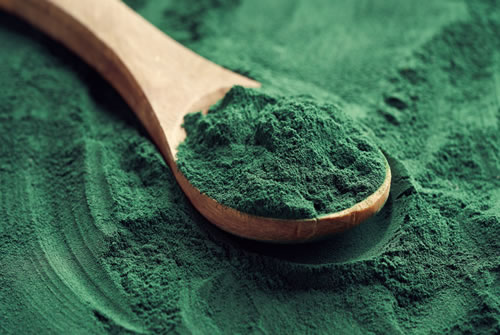Spirulina
Posted on Apr 26th 2023

Spirulina: The Superfood From the Deep Blue
The blue-green microalgae that has risen from the depths of freshwater lakes to become a powerhouse superfood, renowned globally for its nutritional profile. So, grab your diving goggles as we embark on this enlightening underwater journey!
Spirulina Unveiled
Spirulina is a cyanobacterium that thrives in both fresh and saltwater environments. Its name derives from its spiral shape, and it boasts a vibrant blue-green hue, thanks to the pigments chlorophyll (green) and phycocyanin (blue).
Nutritional Brilliance
When it comes to nutritional density, spirulina punches well above its weight:
- Protein Powerhouse: Spirulina is around 60-70% protein by weight, making it one of the richest protein sources available. Moreover, it provides all essential amino acids, classifying it as a complete protein.
- Vitamins & Minerals: Contains Vitamin B1, B2, B3, B6, B9, Vitamin C, Vitamin D, Vitamin E, and Vitamin A. It's also packed with minerals such as iron, magnesium, calcium, and potassium.
- Antioxidants: Spirulina is rich in antioxidants that help combat oxidative stress. Phycocyanin, the pigment responsible for its blue-green hue, also possesses antioxidant properties.
- Fatty Acids: Contains gamma-linolenic acid (GLA) and also offers omega-3 and omega-6 fatty acids.
Health Benefits
- Detoxifying: Known for its ability to bind with heavy metals and toxins, aiding in their removal from the body.
- Immune Support: Several studies suggest it may bolster the immune system.
- Allergy Relief: Can reduce symptoms of allergic rhinitis.
- Cholesterol & Blood Pressure: May assist in lowering bad cholesterol and regulating blood pressure.
- Energy Booster: Many people claim a boost in energy after its consumption.
Incorporating Spirulina
- Smoothies: A popular way to enjoy it, just blend a teaspoon into your favorite concoction.
- Tablets & Capsules: Convenient supplements for those on-the-go.
- Sprinkle: Over salads, dishes, or even popcorn for an added health kick.
Precautions & Considerations
- Source Matters: Always opt for high-quality, organic spirulina. Contaminated or poor-quality spirulina can have adverse effects.
- Thyroid Health: Contains iodine, so those with thyroid conditions should consult a healthcare professional before consumption.
- Pregnancy & Breastfeeding: While spirulina is generally considered safe, it's best for pregnant or breastfeeding mothers to consult with a healthcare provider.
In Conclusion
From ancient Aztecs to modern health aficionados, spirulina's reputation has only grown, standing as a testament to nature's incredible ability to nurture and nourish. As research delves deeper, this blue-green wonder continues to reveal its profound potential.
 Loading... Please wait...
Loading... Please wait...